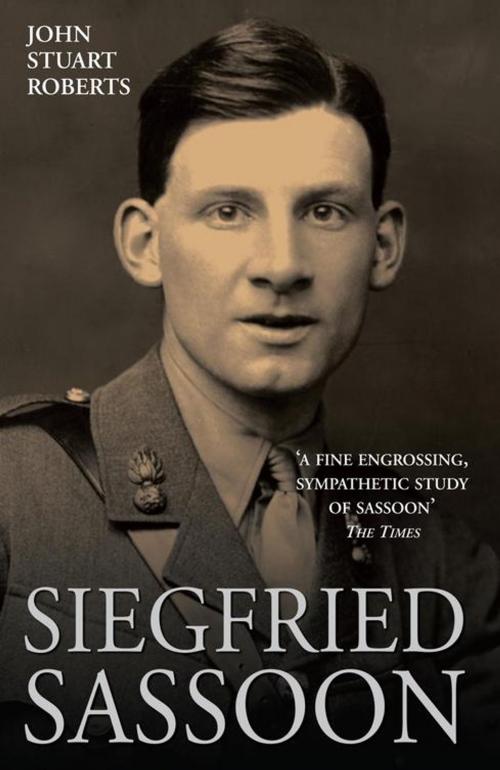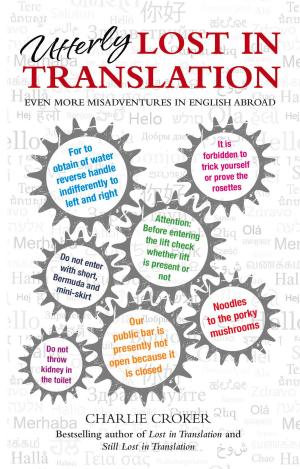| Author: | John Stuart Roberts | ISBN: | 9781784180966 |
| Publisher: | John Blake | Publication: | September 1, 2014 |
| Imprint: | John Blake | Language: | English |
| Author: | John Stuart Roberts |
| ISBN: | 9781784180966 |
| Publisher: | John Blake |
| Publication: | September 1, 2014 |
| Imprint: | John Blake |
| Language: | English |
With two collections of his verse written during World War I, Siegfried Sassoon established himself among the greatest of the war poets. Beyond that, the memoirs of his service with the Royal Welch Fusiliers on the Western Front, beginning with Memoirs of a Fox-Hunting Man, rank perhaps as highly as his poetry, and have done much to shape our modern perception of that war. His is, and remains, one of the most significant voices of his generation—and arguably the most eloquent. As an infantry officer, Sassoon’s courage won him the Military Cross for rescuing men under fire, while his boldness in action earned him the nickname "Mad Jack;" he was also wounded several times, once seriously. As the war dragged on, however, he came to see it as a cynical exercise, leading him to write an anti-war letter to the Times, and to tear the ribbon of his MC from his tunic and throw it into the River Mersey. Alarmed, the authorities sent him to a hospital for shell-shocked officers in Scotland, where he came under the care of the leading psychoanalyst Dr W. H. R. Rivers, and met and befriended a young officer of the Manchester Regiment named Wilfred Owen. Although Sassoon returned to active service, his hatred for the war remained, and by the time of the Armistice he had declared himself a pacifist. John Stuart Roberts’s widely praised biography is a gripping account of a complex man who was at once a product of the establishment and one of its most passionate critics; a war hero and a pacifist who refused to align himself with any particular movement. Written with clarity and directness, this is a biography that looks beyond the common perception of Sassoon as only a war poet to look at the man in full. It is a book that any admirer of Siegfried Sassoon, or anyone who wishes to know more about this enigmatic yet distinctive figure, will cherish.
With two collections of his verse written during World War I, Siegfried Sassoon established himself among the greatest of the war poets. Beyond that, the memoirs of his service with the Royal Welch Fusiliers on the Western Front, beginning with Memoirs of a Fox-Hunting Man, rank perhaps as highly as his poetry, and have done much to shape our modern perception of that war. His is, and remains, one of the most significant voices of his generation—and arguably the most eloquent. As an infantry officer, Sassoon’s courage won him the Military Cross for rescuing men under fire, while his boldness in action earned him the nickname "Mad Jack;" he was also wounded several times, once seriously. As the war dragged on, however, he came to see it as a cynical exercise, leading him to write an anti-war letter to the Times, and to tear the ribbon of his MC from his tunic and throw it into the River Mersey. Alarmed, the authorities sent him to a hospital for shell-shocked officers in Scotland, where he came under the care of the leading psychoanalyst Dr W. H. R. Rivers, and met and befriended a young officer of the Manchester Regiment named Wilfred Owen. Although Sassoon returned to active service, his hatred for the war remained, and by the time of the Armistice he had declared himself a pacifist. John Stuart Roberts’s widely praised biography is a gripping account of a complex man who was at once a product of the establishment and one of its most passionate critics; a war hero and a pacifist who refused to align himself with any particular movement. Written with clarity and directness, this is a biography that looks beyond the common perception of Sassoon as only a war poet to look at the man in full. It is a book that any admirer of Siegfried Sassoon, or anyone who wishes to know more about this enigmatic yet distinctive figure, will cherish.















